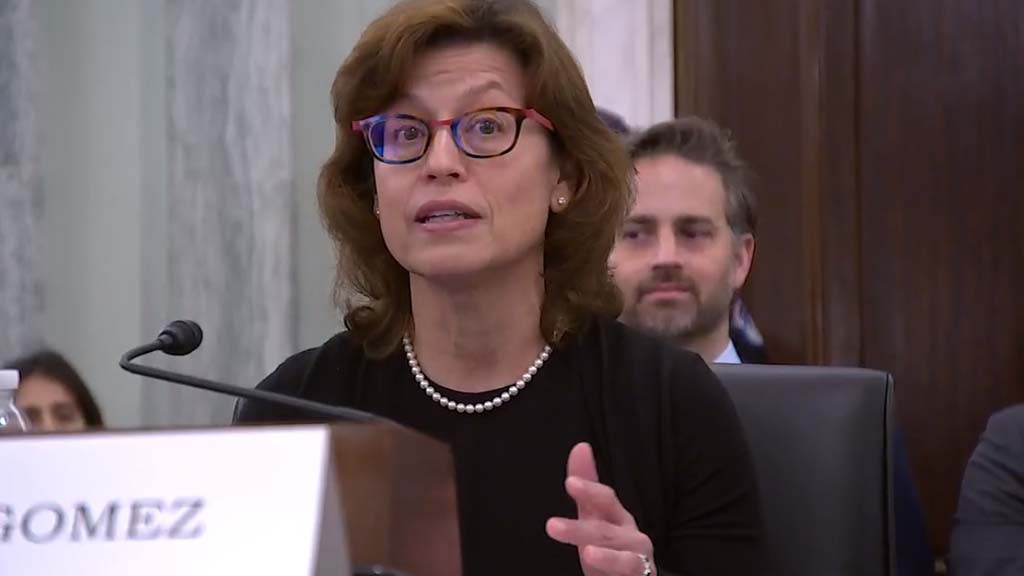
Anna Gomez, President Joe Biden's nominee for the open Democratic seat on the Federal Communications Commission, told a Senate Commerce Committee nomination hearing panel Thursday she supports reclassifying internet access as a Title II telecommunications service.
Currently, the FCC classifies internet access as an information service under Title I of the Communications Act, and not subject to common-carrier/open access regulations. That occurred after network neutrality regulations approved under Obama-era Democratic chair Tom Wheeler were then unapproved by the succeeding Republican majority under Trump-era chair Ajit Pai.
Under questioning by Sen. Jerry Moran (R-Kan.), Gomez said: “I think that private internet access service is too important, too central, to our lives and to our economy not to have effective oversight. And so I would be supportive of reclassification to Title II.”
With the FCC’s two current sitting Democrats, chair Jessica Rosenworcel and commissioner Geoffrey Starks, both supporting robust network-neutrality rules, the way appears open for their return — and likely a return of the legal battle that has characterized the issue for a couple of decades as changes in administrations have led to shifts in regulatory approaches to the internet.
That is, unless Congress steps in to clarify the FCC's broadband regulatory authority, which Gomez said she would support as the best way to resolve the issue. Sen. Ed Markey (D-Mass.) said at the hearing that he planned to introduce legislation clarifying that authority.
Gomez also said that while she thought Title II gave the FCC the strongest oversight, she did not believe in using that authority to regulate pricing, which could be allowed under Title II.
That issue came up during the hearing as a result of FCC chair Jessica Rosenworcel's circulation of a Notice of Inquiry last week into how broadband providers use data caps and usage-based pricing.
Opponents of Title II-based FCC network neutrality rules — which specifically forebore from the rate regulation authority in Title II — feared regulation of such usage models would be a form of back-door rate regulation.
“The [FCC's] proposed 'data cap inquiry' is the opening skirmish in the coming net neutrality battle," says Free State Foundation President Randolph May. "I can almost see Paul Revere riding into the night, warning 'The Internet Regulators Are Coming!’ Make no mistake: FCC regulation of data caps is rate regulation, pure and simple.”







